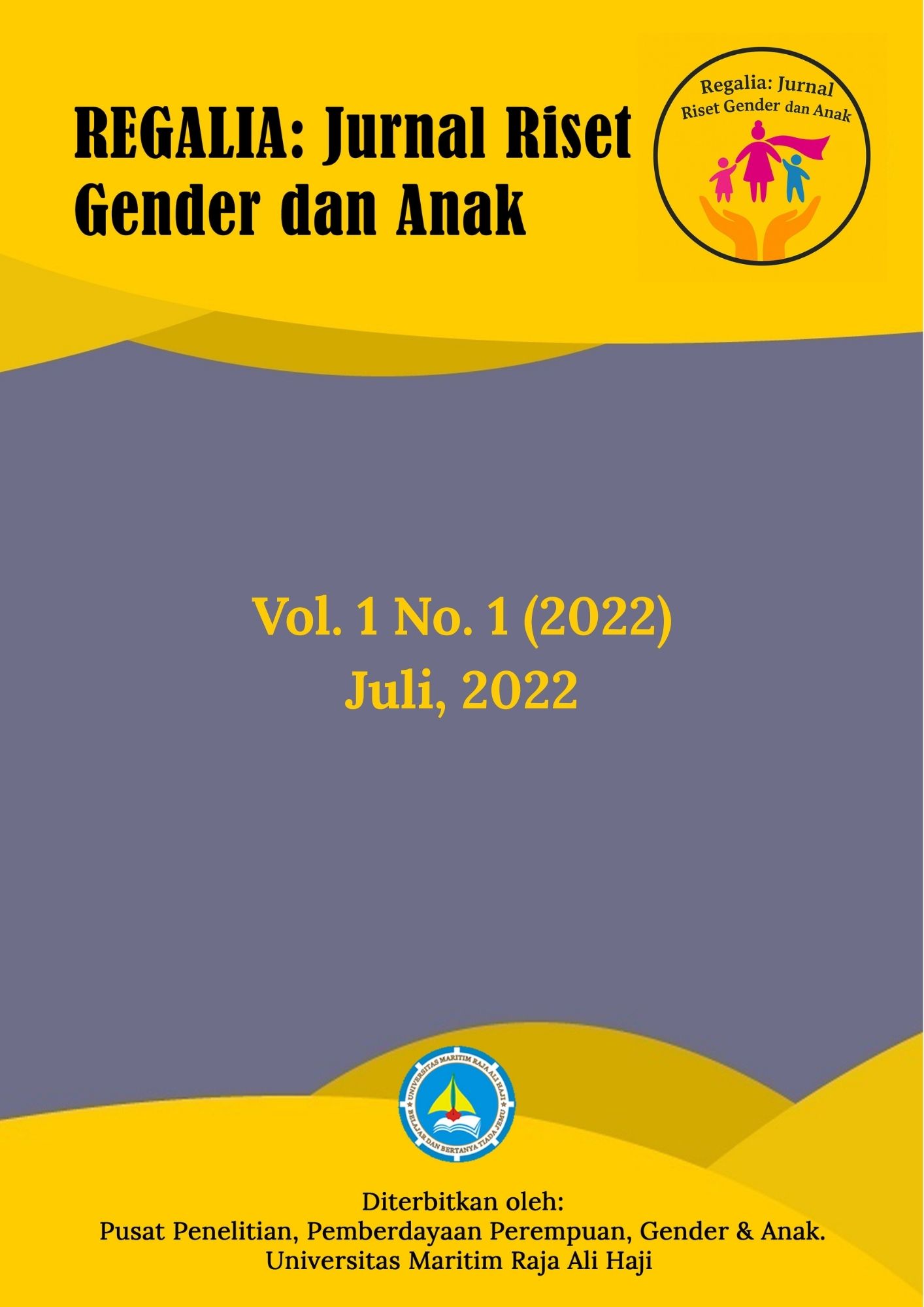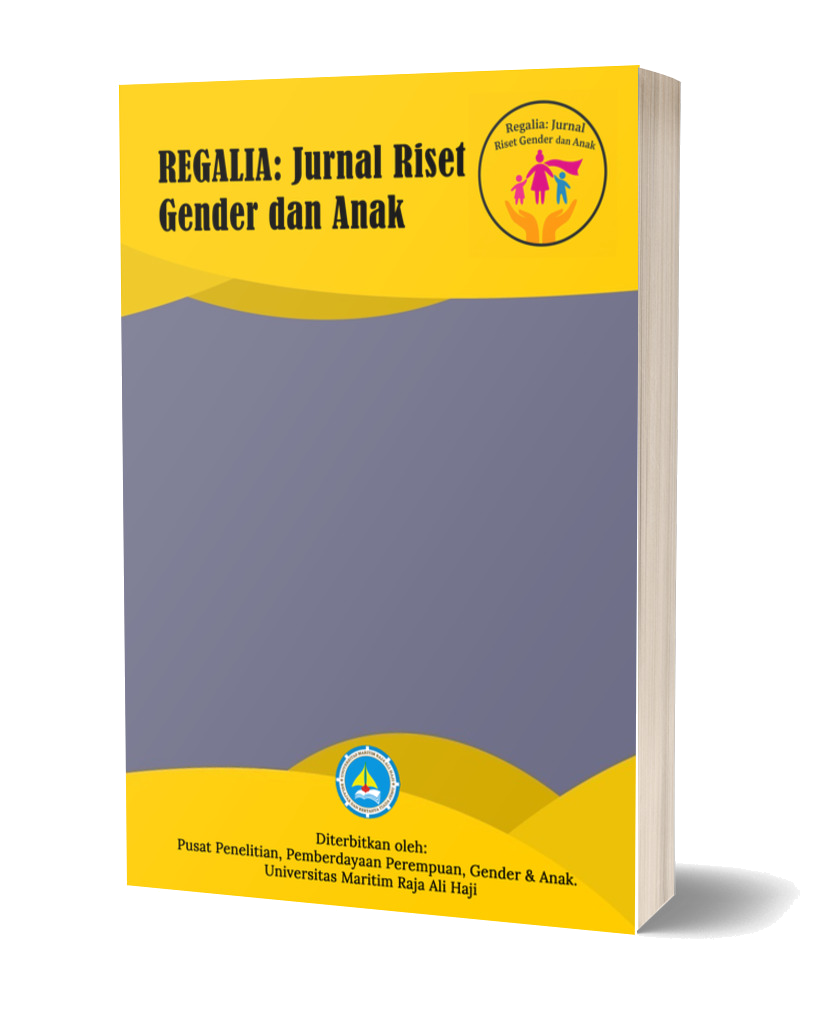MODAL SOSIAL PERAWAT PEREMPUAN MENGHADAPI PANDEMI COVID-19 DI RSUD DR. AGOESDJAM KETAPANG
DOI:
https://doi.org/10.31629/jga.v1i1.4475Keywords:
Perempuan, Modal Sosial, Perawat, COVID-19Abstract
The coronavirus disease (COVID-19) situation in West Kalimantan is
on a worrying threshold. Nurses, doctors and other health workers at
the forefront are among the affected components in this pandemic
situation. The purpose of this research is to map social models that
are strengthening for nurses. In addition to the body's immunity,
social and family strengthening is able to be important as a capital or
psychic power. The method in this study is descriptive analysis, with
data collection through online interviews. Analysis of research data
is carried out in conjunction with data collection, so the triangulation
of data used is the triangulation of data sources. The study found that
female nurses were in hospitals. Dr. Agoesdjam had a strategy in
carrying out tasks during pandemics. They strengthen each other.
Here created a sense of mutual belonging between health workers
who are the vanguard of Covid-19 at dr. Agoesdjam Ketapang
Hospital, with the creation of social capital that is intertwined such
as trust between colleagues, share values or share the feeling and
existence of social networking bonds
Downloads
References
Colleman, J. S. (2000). Social Capital in The Creation of Capital in The Creation of Human Capital. The World Bank: Washington DC.
Harnida, H. (2015). Hubungan efikasi diri dan dukungan sosial dengan burnout pada perawat. Persona: Jurnal Psikologi Indonesia, 4(1).
Hasbullah, J. (2006). Social capital: Menuju keunggulan budaya manusia Indonesia. MR-United Press.
Maslach, C., & Leiter, M. P. (2016). Burnout. In Stress: Concepts, cognition, emotion, and behavior (pp. 351-357). Academic Press.
Niko, N. (2018). Perempuan Dayak Benawan: Kedudukan pada Struktur Domestik & Publik. Yogyakarta: Deepublish.
Niko, N. (2021). Poor and Hunger: How Do Indigenous Peoples’ Respond to COVID-19 in Indonesia? Journal of Community Development Research (Humanities and Social Sciences). 14(1), 81-92. Doi: https://doi.org/10.14456/jcdr-hs.2021.8
Putnam, R. (1993). The Prosporous Community, Social Capital and Public Life. The American Prospect, 13-65-78.
Riddel, S., Wilson, A., & Baron, S. (2001). Gender, social capital and lifelong learning for people with learning difficulties. International Studies in Sociology of Education, 11(1), 3-24.
Rupita, R. (2020). Konflik Peran Perawat Perempuan pada RSUD Dr. Agoesdjam Kabupaten Ketapang Kalimantan Barat. NUANSA: Jurnal Penelitian Ilmu Sosial dan Keagamaan Islam, 17(1), 32-45.
Rupita. (2021). Pemanfaatan Modal Sosial Lokal dalam Menghadapi Pandemi COVID-19. Jurnal Neo Societal. 6(1), 46-55. Doi: http://dx.doi.org/10.33772/jns.v6i1.14117
Solikatun & Juniarsih, N. (2018) Modal Sosial Sebagai Srategi Bertahan Hidup Masyarakat Desa Maria, Kecamatan Wawo, Kabupaten Bima, Provinsi Nusa Tenggara Barat. Jurnal Analisa Sosiologi, 7(2).
Downloads
Published
Issue
Section
License
Anda bebas untuk:
- Berbagi — menyalin dan mendistribusikan ulang materi dalam media atau format apa pun untuk tujuan apa pun, bahkan secara komersial.
- Mengadaptasi — mencampur, mengubah, dan membuat materi untuk tujuan apa pun, bahkan secara komersial.
- Pemberi lisensi tidak dapat mencabut kebebasan ini selama Anda mengikuti ketentuan lisensi.
Berdasarkan ketentuan berikut:
- Atribusi — Anda harus memberikan penghargaan yang sesuai, menyediakan tautan ke lisensi, dan menunjukkan jika ada perubahan yang dilakukan. Anda dapat melakukannya dengan cara yang wajar, tetapi tidak dengan cara yang menunjukkan bahwa pemberi lisensi mendukung Anda atau penggunaan Anda.
- BerbagiSerupa — Jika Anda mencampur, mengubah, atau membuat materi, Anda harus mendistribusikan kontribusi Anda di bawah lisensi yang sama dengan aslinya.
- Tidak ada batasan tambahan — Anda tidak boleh menerapkan ketentuan hukum atau tindakan teknologi yang secara hukum membatasi orang lain untuk melakukan apa pun yang diizinkan oleh lisensi.











